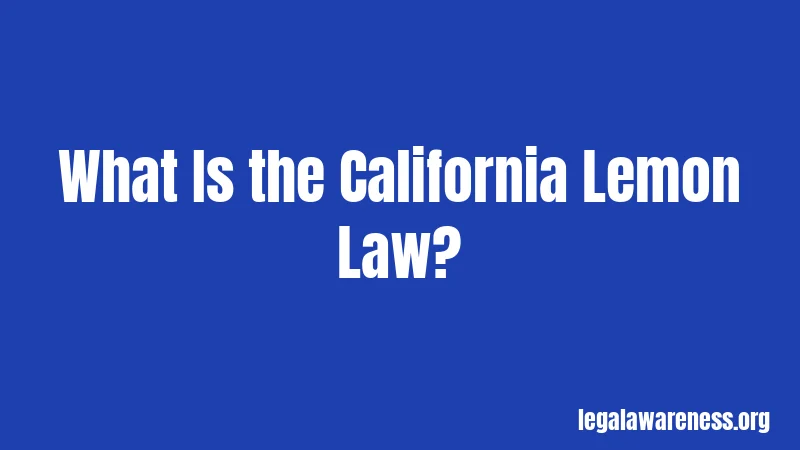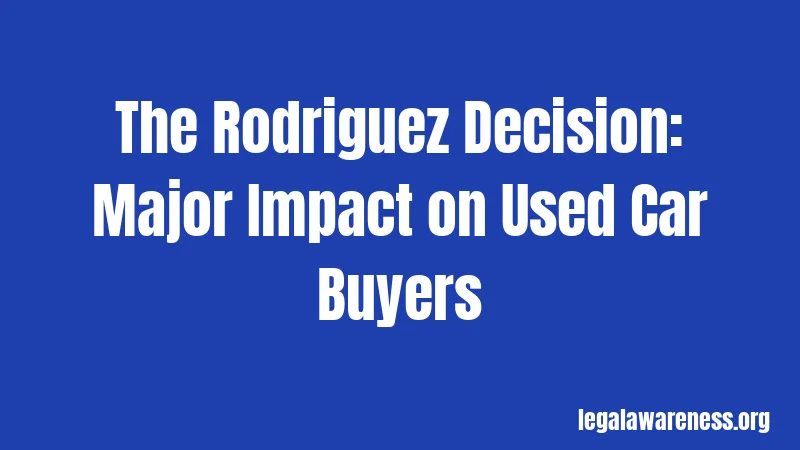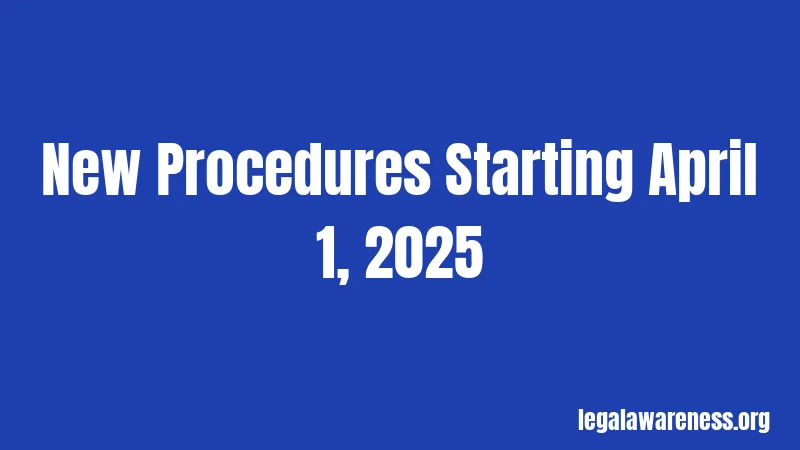California Lemon Laws in 2026: Major Changes You Need to Know
You’re gonna want to read this carefully. California just made major changes to its lemon law—the law that protects you when you buy a defective car. These changes affect your legal rights when something goes wrong with your vehicle.
Okay, here’s the reality. Most people have no idea these new rules even exist. But in California, the lemon law is strict, and the penalties for missing deadlines can hit hard. Let’s break down exactly what you need to know to protect yourself.
What Is the California Lemon Law?

The California lemon law is officially called the Song-Beverly Consumer Warranty Act. It’s basically consumer protection for car buyers. Here’s what it does: if you buy a car with a defect, the manufacturer has to fix it. They can’t just ignore you.
Think of it like this. You buy a car with a warranty. The manufacturer promises it will work properly. If it doesn’t, and the problems can’t be fixed, you have rights. The law says the manufacturer must either repair your car, replace it entirely, or buy it back from you.
Pretty straightforward, right? Well, it was. But things just got way more complicated.
The Big Changes (Effective January 1, 2025)
Here’s where it gets important. In September 2024, Governor Gavin Newsom signed a new bill called AB 1755. This law completely changed how California’s lemon law works. And honestly, the changes favor car companies more than car buyers.
The main problem? The deadlines got shorter. Much shorter.
New Time Limits for Filing Claims
Stay with me here. This is critical.
Under the old law, you had a lot of time to file a claim. You could file anytime your warranty was still valid. But the new law changed that completely. Now you can only file a claim within one year of your warranty expiring. And no matter what, you must file within six years of the original purchase date.
Let me give you an example. Say you buy a car with a 10-year warranty. The old law would have let you file within that entire 10-year window (or longer). But the new law? You only have one year after those six years are up. If you miss that deadline, you lose your legal rights. Done. No refund. No replacement.
This is brutal for people who discover problems later.
You Have to Notify the Manufacturer First
Now the manufacturer doesn’t have to be the first one to know about problems. You do. You must contact the car manufacturer in writing and give them a chance to fix the problem before you sue. And you have to do this at least 30 days before filing a lawsuit.
This sounds reasonable until you realize something. You have to jump through this extra hoop, which uses up your already-limited time window.
The Rodriguez Decision: Major Impact on Used Car Buyers

Wait, it gets worse. In October 2024, California’s Supreme Court made a major ruling in the case Rodriguez v. FCA US LLC. This ruling drastically limited protections for used car buyers.
Here’s what changed. The court decided that most used cars don’t qualify for full lemon law protection anymore. Only certified pre-owned (CPO) vehicles with a new manufacturer warranty get full coverage now.
Sound complicated? Let me break it down.
You’re not alone if this confuses you. Most people don’t realize how strict this new ruling is.
Who Loses Protection Under This Ruling
If you bought a used car with a remaining factory warranty, you’ve lost protection. This affects millions of California buyers. Basically, if the car isn’t certified pre-owned (CPO) or doesn’t have a new warranty from the manufacturer, you’re out of luck.
The impact is massive. Roughly 3.5 million used cars get sold in California every year. Most of them no longer have full lemon law protection. A buyer could spend $25,000 on a used car with serious defects and only get repairs—not their money back.
CPO Vehicles Still Get Protection
If you buy a CPO vehicle with a new warranty, you’re still protected. CPO stands for “certified pre-owned.” These are used cars the manufacturer has certified as being in good condition and usually come with a fresh warranty.
But here’s the catch. Only about 10% of used car lemon law cases involve CPO vehicles. So this protection helps very few people.
Filing Deadlines Under the New Law
Okay, pause. This part is super important because getting these dates wrong could cost you everything.
Under the new rules that took effect January 1, 2025, these are your critical deadlines:
File within one year of your warranty expiring. If your warranty runs out on January 1, 2025, you have until January 1, 2026 to file. Miss that date? Your claim is gone.
File within six years of the original purchase date. This is your absolute longest window, no matter what. Six years from the day you bought the car is the final deadline.
Notify the manufacturer 30 days before suing. You must give the car company written notice and 30 days to respond before you can file a lawsuit.
These deadlines are serious. A court can actually sanction anyone who doesn’t follow them—starting July 1, 2025. This means lawyers and plaintiffs could face penalties for missing dates.
The message is clear: move fast or lose your rights.
New Procedures Starting April 1, 2025

Another important date is April 1, 2025. That’s when additional requirements kick in for filing civil penalty claims.
If you want your case to include civil penalties (extra damages to punish the manufacturer), you have to follow strict new procedures. The rules get even more complicated than before. This is another reason why getting legal help quickly is now essential.
What Remedies Are Available?
Here’s what you could actually get if you win a lemon law case. Manufacturers have three main options.
Repair the Vehicle. The manufacturer fixes whatever is wrong. This is usually the first step they’ll try.
Replace the Vehicle. They give you a new (or newly repaired) version of the same model or something similar. You turn in the defective car.
Repurchase the Vehicle. They buy the car back from you. You get your money back. This is what most people want, but it’s the hardest to get.
When the manufacturer repurchases your vehicle, they must:
Pay you within 30 days of getting your signed release. Pay the remaining loan balance if you financed it. Cover your attorney’s fees. Pay any civil penalties owed.
If they don’t pay within 30 days, daily penalties start adding up against the manufacturer.
The Two Systems Now Available
Here’s something most people don’t realize. California now has different paths depending on which manufacturer you’re dealing with.
Some manufacturers—like Ford, GM, and many RV makers—chose to follow the new AB 1755 procedures. Other manufacturers still follow the old rules. This means your rights might depend on who made your car.
The California Department of Consumer Affairs maintains a list of manufacturers who opted into the new system. You can check which one applies to your situation. This matters because the procedures and deadlines might be different.
Arbitration as an Alternative
Many manufacturers participate in arbitration programs certified by California’s Department of Consumer Affairs. Arbitration is basically a faster, less formal way to resolve disputes without going to court.
Here’s the deal with arbitration. It’s usually finished within 40 days. You can present your case in person, over the phone, virtually, or in writing. There’s no lawyer required (though having one helps). And it’s faster than court.
But arbitration isn’t always in your favor. Arbitrators don’t always award as much as courts would. You need to weigh your options carefully.
Steps to Take If You Think You Have a Lemon
Document everything from day one. Keep every repair receipt. Save service records. Photograph any problems. Write down dates when issues happened. This is your evidence.
Visit the dealership immediately when problems arise. Don’t wait. Get it on the record. Ask them to document the issue and the repair attempts.
Keep personal receipts too. Did you pay for a rental car while yours was being fixed? Keep that receipt. Pay for rideshare or taxis? Keep those receipts. These are costs you might recover.
Contact a lemon law attorney quickly. Seriously, don’t wait. The deadlines are tight. An experienced lemon law attorney can review your situation and tell you if you have a case.
Most lemon law attorneys work on contingency. This means you don’t pay unless you win. Many offer free consultations.
Before your attorney contacts the manufacturer, make sure all the ducks are in a row. You need to meet the new legal requirements. One procedural mistake could sink your entire case.
Recent Changes: Senate Bill 26 (SB 26)
In April 2025, another change happened. Governor Newsom signed Senate Bill 26, which added more options for manufacturers.
SB 26 lets manufacturers opt into the new AB 1755 procedures—or stay with the old system. They have to choose by a certain deadline, and their choice lasts five years.
The bill also requires manufacturers to put their lemon law contact information on their website, in the owner’s manual, and in the warranty booklet. This must be in both English and Spanish.
What does this mean for you? Make sure you know which rules apply to your car manufacturer. Check their website or your warranty documents.
Time Is Running Out: The Deadline Trap
Honestly, this is the part most people miss. The new system creates a trap for unsuspecting car buyers.
Here’s the problem. Your warranty might last longer than the filing deadline. Let’s say you buy a car with an 8-year warranty. You only have 6 years to file. That means your lemon law rights expire 2 years before your warranty does.
Pretty messed up, right?
Imagine you discover a serious problem in year 5. You have time to get it fixed under warranty. But you’re already outside the 6-year filing window, so you can’t sue for a refund or replacement.
The solution? Act fast. The moment you notice recurring problems, contact a lawyer. Don’t wait to see if repairs work. Don’t wait to gather more documentation. Move immediately.
Special Circumstances and Exemptions
Military personnel get some extra time. If you’re active duty, your filing deadline can be extended. This is called the Servicemembers Civil Relief Act (SCRA) and it can add time to your deadlines.
If you’re a deployed service member, talk to a lawyer about how SCRA applies to your situation.
People with disabilities might also get accommodations. If you need special accessibility features in your vehicle and they aren’t working, contact an attorney about your options.
What Happens If You Miss the Deadline?
You lose. That’s the reality.
If your one-year window closes after the warranty expires, you can’t file a claim. If the six-year purchase date passes, you can’t file a claim. There’s no extension. There’s no “do-over.”
One missed deadline and your right to a refund or replacement is gone forever. You’re stuck with a defective car and no legal recourse.
This is why getting legal help immediately matters so much.
Frequently Asked Questions
What counts as a “defect” under California lemon law?
A defect is any problem with your vehicle that came from the factory. It can be mechanical, electrical, or anything else affecting function or safety. One small issue might not count, but repeated failures of the same part usually does.
Do used cars get lemon law protection?
Not usually anymore. After the Rodriguez ruling, only CPO vehicles with new manufacturer warranties get full protection. Regular used cars with remaining factory warranties no longer qualify.
How many times does a shop have to try fixing a problem for it to be a “lemon”?
This depends on the specific defect. For major defects, sometimes one serious failed repair is enough. For minor defects, the manufacturer usually gets multiple attempts. There’s no magic number—each case is different.
If I file a lemon law claim, can the manufacturer retaliate against me?
No. It’s illegal for a manufacturer to retaliate against you for filing a lemon law claim. But you need to document everything if you believe retaliation is happening.
Can I file a lemon law claim while still making car payments?
Yes. You don’t have to own the car outright. If you’re financing it and it qualifies as a lemon, you can still file. The manufacturer will pay off your loan when they repurchase the vehicle.
Important Contact Information
California Department of Consumer Affairs (Arbitration Certification Program): www.dca.ca.gov/acp
Check this website for the list of manufacturers who’ve opted into the new AB 1755 procedures.
California DMV Lemon Law Information: www.dmv.ca.gov
Song-Beverly Consumer Warranty Act (California Civil Code Section 1790): This is the actual law. An attorney can explain it in plain language.
Final Thoughts
The California lemon law still exists, but it’s way harder to use now. The deadlines are shorter. The procedures are more complicated. Used car protections have almost disappeared. But you still have rights.
Here’s what you need to do right now. If you’re having problems with a vehicle, document everything immediately. Then call a lemon law attorney without delay. Don’t assume you understand the new rules. Don’t wait to see if repairs work. Move fast.
The law used to give you years to figure this out. Now you’re working in months. The sooner you talk to a lawyer, the better your chances of protecting your rights. Many attorneys offer free consultations, so there’s no reason to wait.
You’ve got this, but you’ve got to move quick.
References
California Department of Consumer Affairs – Lemon Law Updates
Rodriguez v. FCA US LLC – California Supreme Court Decision
California Assembly Bill 1755 (AB 1755) – Full Text and Summary
California Senate Bill 26 (SB 26) – Lemon Law Updates
Song-Beverly Consumer Warranty Act – California Civil Code Section 1790
